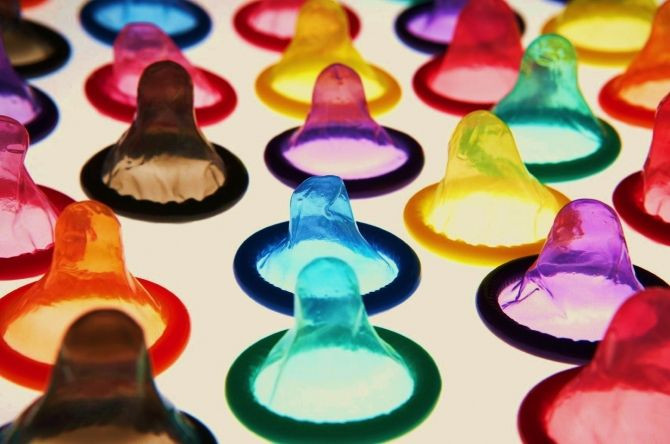Philadelphia High Schools Will Start Giving Away Free Condoms to Students

Over the winter break, 22 Philadelphia high schools will have dispensers installed in their schools that will give away free condoms to students. The dispensers will be placed in schools where students have the highest rate of sexually transmitted infections. Though parents have ostensibly known about the program since the beginning of the school year and were allowed to opt out, the condoms will not be supervised. The school district says that, if a student whose parents opted out takes a condom, it is a matter that should be settled at home.
The move is an extension of Philadelphia's public health program targeting sexually transmitted infections. In order to combat what the city has called an "epidemic", the city has given away 4 million condoms since April of last year. The program has been viewed as a success; STI rates are falling.
However, 25 percent of new STI cases are in teenagers. The city has already attempted to combat that statistic in some schools. In schools that have health resource centers, the city has begun to give out free condoms. The schools also test teens for STIs with parental consent.
The condoms are to be placed inside the doorway of the nurse's offices, but nurses are not to be charged with monitoring of the dispenser. That will likely be a relief to at least two of the schools included in the pilot program who do not have full-time nurses.
Officials also acknowledge that teens may use the condoms inappropriately, but they do not believe that those risks outweigh the benefits. "We don't want kids to either not use them - have the dispensers and no one touches them - or to have hundreds of condoms taken and used inappropriately, for water balloons or something like that," Donald F. Schwarz, the deputy mayor for health and opportunity, said to the Philly.com. "But they'll be supervised."
Philadelphia teenagers have been particularly hard hit by sexually transmitted infections. According to the Philadelphia Department of Health, 63 percent of teens report being sexually active, while 37 percent of teens reported to pollsters that they did not use condoms the last time that they had sex. The same study found that Philadelphia teens aged 10 to 14 were 5.3 times as likely to have Chlamydia and 4 times as likely to have gonorrhea as American teens nationwide. That number fell among 15- to 19-year-olds, though Philadelphia 15- to 19-year-olds were still alarmingly 3.5 times more likely to have Chlamydia and 3 times more likely to have gonorrhea than their national peers.
The Health Department will cover the cost of the program. It is not yet known how many parents have opted out.
Advocates for Youth, an organization that rallies for sexual health among young people, reports that there are at least 418 schools in the United States that give out free condoms to its students.



























